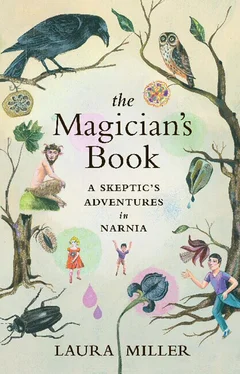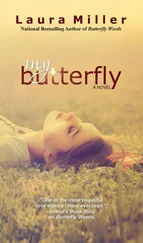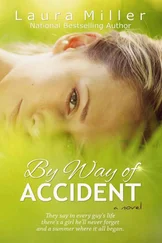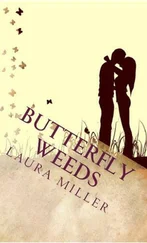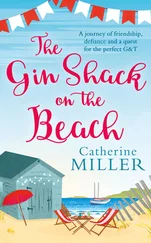So I was horrified to discover that the Chronicles of Narnia, the joy of my childhood and the cornerstone of my imaginative life, were really just the doctrines of the Church in disguise. I looked back at my favorite book and found it appallingly transfigured. Of course, the self-sacrifice of Aslan to compensate for the treachery of Edmund was exactly like the crucifixion of Christ to pay off the sins of mankind! How could I have missed that? I felt angry and humiliated because I had been fooled.
Part of the purpose of learning to read critically is to alert us to an author’s hidden intentions and unconscious biases. Once you realize that a good story has the power to deceive you, it’s impossible to wholeheartedly embrace the ignorance that is always a part of innocence. I was sorry, very sorry, to lose Narnia, but I always would have chosen to know the truth.
For reasons like these, most of us, somewhere along the line, are taught to read with an intellectual distance. At school, we graduate from simple book reports to writing essays in which we’re expected to ferret out the symbols and themes of stories we once might have believed to be the stuff of actual life. We learn who authors are and how to detect what they’re really up to. But that’s not the end of the judgments we learn to apply. Later still, we will realize that some books are in better taste than others, and that our own favorites might not number among the acknowledged best.
The critic Clive James has written with chagrin of what he eloquently calls “the radiant books of our youth”; his boyhood enthusiasm for Arthur Conan Doyle’s fiction embarrasses him now. Fifty years later, he still remembers the “heft” of a volume entitled The Complete Professor Challenger Stories — remembers it so clearly, in fact, that he thinks of it every time he picks up a book of the same weight. Yet when James reads Doyle now, he finds only a rummage sale of callow, long-discarded fantasies, “superseded daydreams of glamour, sex, bravery and deductive brilliance,” which “are always funny when they are not shameful.”
The novelist Graham Greene is another who marveled at the now-alien world of his boyhood reading. “Perhaps it is only in childhood that books have any deep influence on our lives,” he wrote. “In later life we admire, we are entertained, we may modify some views we already hold, but we are more likely to find in books merely a confirmation of what is in our minds already…. But in childhood all books are books of divination, telling us about the future.” The books we happen to latch onto as children help to furnish our imagination and, to a certain degree, our identity. But if we return to them as adults, we sometimes find, as Clive James did, that the décor is garish or uncomfortable. It’s not a place to which we’d care to invite our friends.
Ever since I reread The Lion, the Witch and the Wardrobe for that assignment over a decade ago, the Chronicles of Narnia have presented me with a puzzle, one that would eventually prompt me to write this book. When I finally came back to Narnia, I found that, for me, it had not lost its power or beauty, or at least not entirely. Although I am a little bit abashed about this, I am not like Clive James; the radiant books of my youth still seem radiant to me. Yet there are aspects of Narnia I can no longer embrace with the childish credulity that Greene describes. Then again, I am like James in that I’m sometimes dismayed by the prejudices and narrow-mindedness of the Chronicles’ author, and in a way I am also like Greene, in that I reread these books partly to find what is already in my mind. Nevertheless, what I dislike about Narnia no longer eclipses what I love about it, and the contents of my own mind still have the capacity to surprise me when I study them carefully enough.
What I am not, however, is a Christian; for all the countless times I have reread Lewis’s books, they have never succeeded in converting me. This, to many casual observers, no doubt makes my continuing enjoyment of the Chronicles perplexing. Most of the critics and scholars who pay any kind of sustained attention to Lewis’s work are Christians themselves, and their faith is the motivation for that attention. To everyone else, Lewis is an apologist for the Christian faith, and that is the only kind of meaning that could ever be found in anything he wrote. The Chronicles are merely religious “allegory” (the term most often — and erroneously — used to describe them in the general-interest press) and about as interesting to the nonbeliever as a cruise ship sales brochure is to a man determined never to leave dry land.
Besides, the Chronicles are children’s fiction. They belong to a class of literature that, in the opinion of many, doesn’t merit serious critical consideration. I can see how James or Greene might agree with this point of view: the former finds that the ugly old lamp no longer produces a genie when rubbed and the latter realizes he has nothing left to wish for. Nevertheless, I go on thinking that there is something significant in the Chronicles of Narnia, something more or less apart from their thinly concealed theological messages. I’m unwilling to resign myself to accepting a fathomless gap in the early part of my life, between the reader I was as a child and the reader I am now.
Lewis himself liked to read children’s books occasionally, both the ones he’d loved as a child growing up in Ireland in the early twentieth century, and others that he discovered later; Kenneth Grahame’s The Wind in the Willows was a particular favorite. “A children’s story which is enjoyed only by children is a bad children’s story,” he once remarked. Lewis was an Oxford don, a bachelor pushing fifty who had very little real-world experience with children, when he wrote The Lion, the Witch and the Wardrobe . Unlike his good friend J. R. R. Tolkien, who told an early version of The Hobbit to his children, Lewis had to rely on memories of his own childhood tastes while writing his books. Evidently, those memories lay close to hand; his facility at writing for children has ever since offered his biographers cause to describe him as a man who never entirely grew up.
Lewis always maintained that he chose to write a “fairy tale” because he had something to say which could only be expressed in this way. He didn’t offer much detail as to what that something was, but he did once write that he had fallen in love “with the form itself: its brevity; its severe restraints on description; its flexible traditionalism; its inflexible hostility to all analysis, digression, reflections, and ‘gas.’” To my mind, these are all ways of describing one variety of good writing, whether for adults or children, and when the Chronicles are well written — which is often — the quality is not age-dependent. Lewis, however, would have found nothing remarkable in this fact, for he also insisted that “fairy tales” (a term he used to include writings that we’d call “fantasy” today) were not meant only for children. Although the Chronicles were patently intended for young readers, they partake of literary traditions that are as old as the act of storytelling itself.
There is yet another reason to devote the kind of attention to the Chronicles that critics ordinarily reserve for the works of writers like Flaubert or F. Scott Fitzgerald, and it may be the most persuasive of all. In An Experiment in Criticism, Lewis floats the idea that we can determine how good a book is by how it is read. This was an offbeat notion at a time when most critics judged a book by how it was written, and it would become an irrelevant one a few years later, when deciding how “good” a book was would seem immaterial to most academics. But Lewis — who was, above all else, a passionate, omnivorous, and generous reader — thought that this might be the best way to appreciate a book’s worth, especially since he regarded the literary mandarins of his day as slaves to pernicious intellectual fads.
Читать дальше
